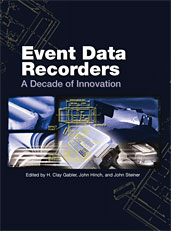Journal Article
Integrating Electromechanical Systems in Commercial Vehicles for Improved Handling, Stability, and Comfort
2014-09-30
2014-01-2408
The 2014 SAE Buckendale Lecture will address the past developments and challenges of electromechanical “smart” systems for improving commercial vehicles' functionality. Electromechanical systems combine traditional mechanical devices with electrical components to provide far higher degree of functionality and adaptability for improved vehicle performance. The significant advances in microprocessors and their widespread use in consumer products have promoted their implementation in various classes of vehicles, resulting in “smart” devices that can sense their operating environment and command an appropriate action for improved handling, stability, and comfort. The chassis and suspension application of electromechanical devices mostly relate to controllable suspensions and vehicle dynamic management systems, such as Electronic Stability Control.

